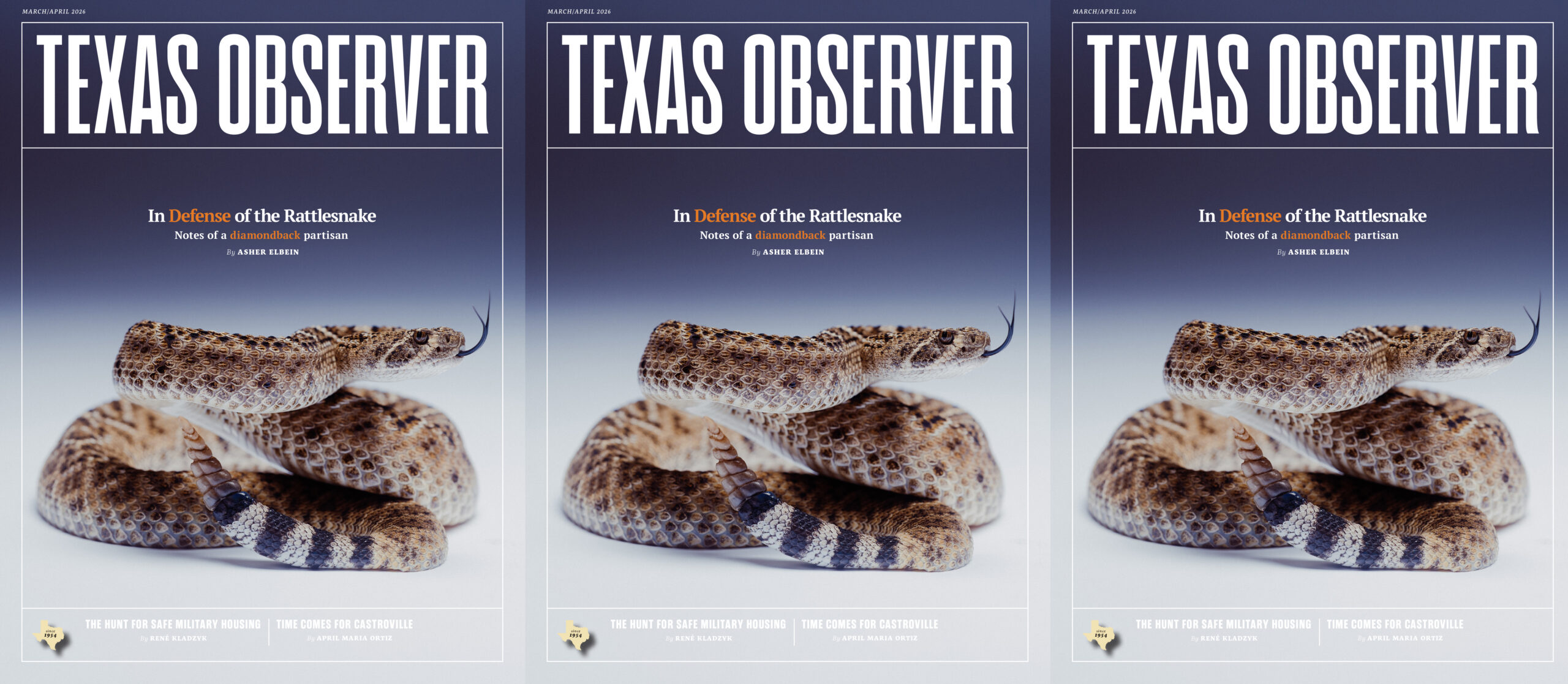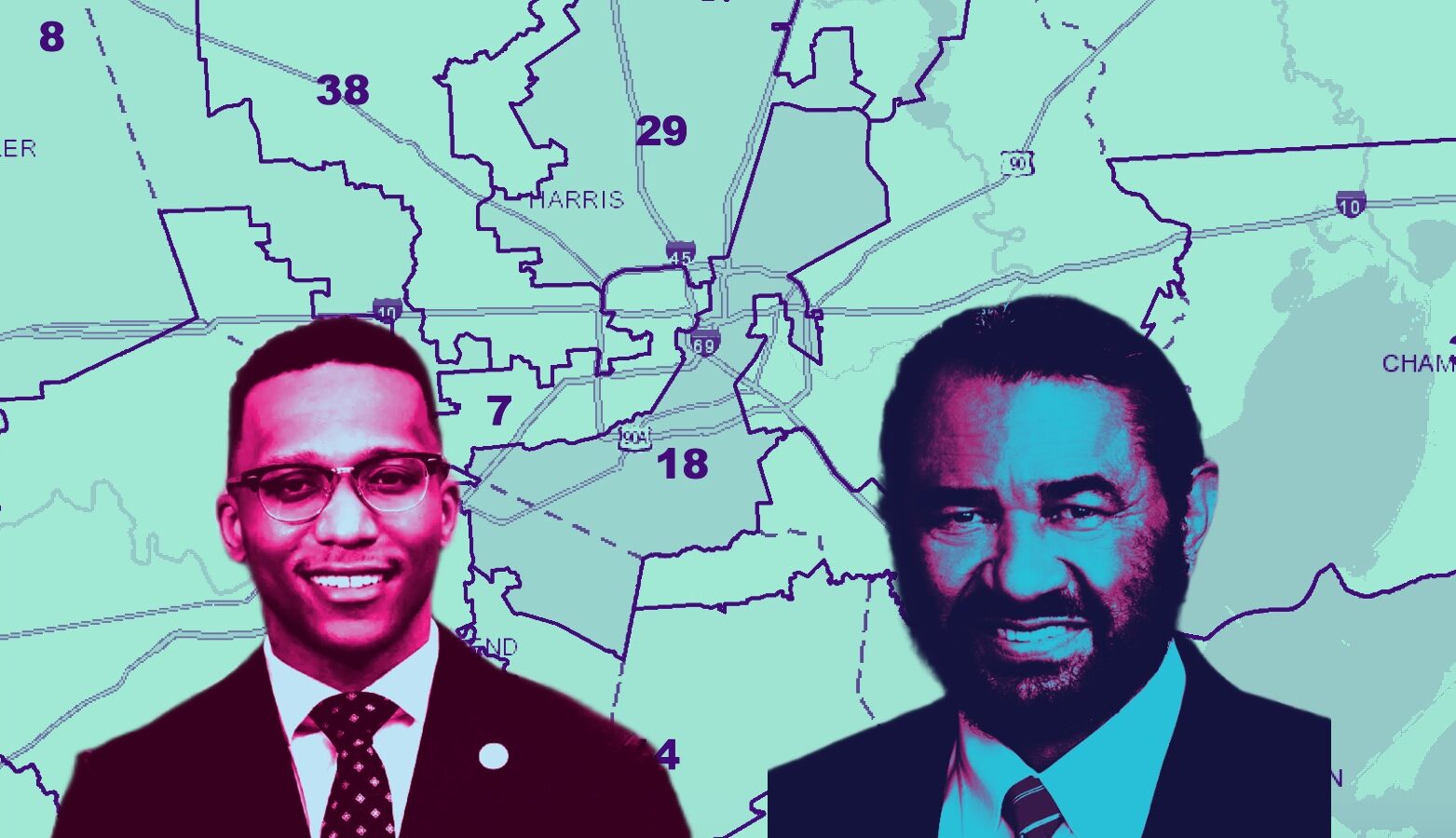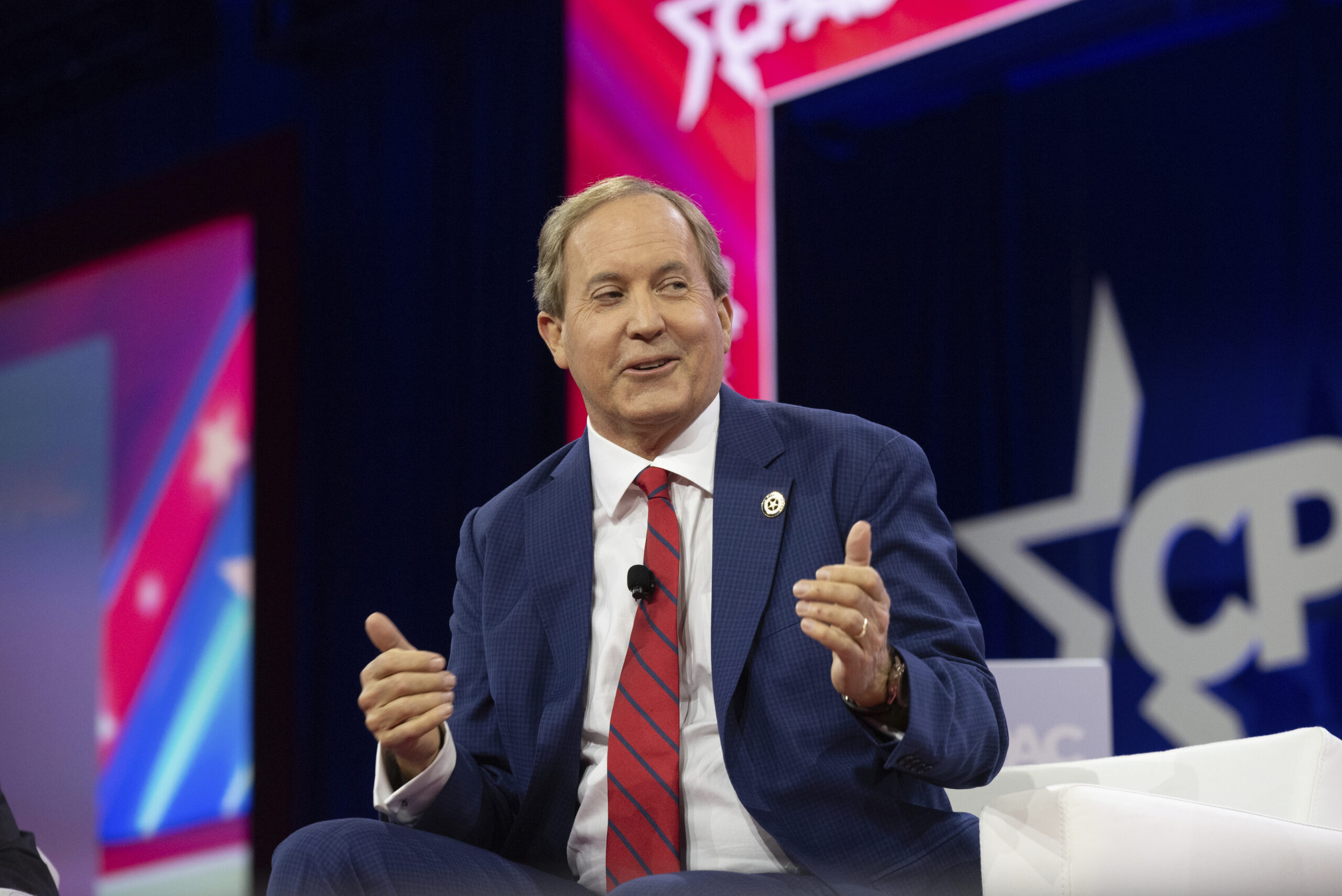Tax and Divert
Texans pay billions in special fees and taxes for worthwhile programs. Why does the money go elsewhere?

Click on the image above to enlarge. For a pdf version, click here.
Listen to Forrest Wilder’s interview with KUT.
By passing a harsh, cuts-only budget in April, Texas House Republicans proudly say they delivered on their campaign promises. “The voters spoke,” says Rep. Erwin Cain, a freshman Tea Party Republican from Northeast Texas. “We listened. Today the House approved a bill that, if enacted, will balance the budget without raising taxes.”
It’s true: There are no new taxes in the House proposal. Instead, it savagely punches a $23 billion hole in state government by imposing crippling cuts to public schools, health care and higher education. To make the budget balance, lawmakers have relied on massive chicanery, tapping an assortment of hidden fees, special taxes and fines in ways that “the voters” might not appreciate. If budgets are moral documents, as they say, then this one has a problem with transparency and honesty.
Over the decades, lawmakers have created dozens of programs funded by specific revenue streams. There’s a tax on chewing tobacco designed to help rural doctors pay back their student loans. Fees and taxes on heavy-duty trucks and equipment are meant to pump millions into the state’s main clean-air program. A $10 fee on annual CPA licenses is supposed to pay for fifth-year student scholarships. Specialty license plates are intended to generate millions for abused children, veterans and cancer patients. The revenue produced by these programs is supposed to be separate from the main budget, “dedicated” to a specific purpose.
Since the mid-1990s, lawmakers have been helping themselves to these little rainy day funds, diverting them from their intended purposes. This session, the no-new-taxes mania has driven the practice to a new level. The result is that Texas citizens and businesses could end up paying billions in special taxes and fees, but not see the promised benefits. To some legislators, it’s another sign of a failed fiscal approach.
“We’re using general revenue-dedicated dollars as a crutch to lean on instead of fixing our broken revenue system,” says Rep. Mike Villarreal, a San Antonio Democrat and an unabashed budget wonk. “It’s one of the reasons we’re in the mess we’re in today. If we had more transparency, voters would be able to hold us accountable, and we’d better be able to pass a budget reflecting the needs of the people.”
Rep. Jim Pitts of Waxahachie, the Republican chairman of the House Appropriations Committee, defends the diversions. “If we didn’t do that, we’d have to be looking for $3 billion more to certify our budget because that’s how much we depend on these balances,” Pitts says.
Those calling for a more sensible tax system don’t necessarily disagree—they just think the practice is legerdemain. “We just don’t want to say we need $4 billion a year from taxes, so we play all these smoke-and-mirrors games,” says Eva de Luna Castro, senior budget analyst with the left-leaning Center for Public Policy Priorities.
At the Legislature, the tax-and-divert system is an open secret. And no consumer-created fund has generated more discussion and controversy than the System Benefit Fund. Created in 1999 as part of electricity deregulation, the fund was designed primarily to provide a safety net for poor and elderly Texans buffeted by the “liberated” electric market. A monthly 65-cent fee on every ratepayer’s bill pays for the System Benefit Fund—about $150 million per year. Originally, the money was supposed to pay for a 10 to 20 percent discount on low-income folks’ utility bills.
A few years later, the Public Utility Commission and the Texas Legislature began whittling away at the discount. Money kept coming in, but lawmakers sat on most of it. By denying aid to the needy, the state built up a large account balance. Today budget writers have $997 million in the System Benefit Fund. Under the House budget, only $169 million—one-quarter less than the current biennium—would go to citizens struggling with their electric bills. The rest would be used to balance the budget.
The confiscation of the fund infuriates Rep. Sylvester Turner, a Houston Democrat and champion of programs for the poor. “The governor has said repeatedly in his State of the Union addresses that we should not take money from people for one purpose and spend it on another in this veil of secrecy,” Turner says. The Tea Party and small-government conservatives, he says, have “railed against government and said government cannot spend people’s money better than they can spend it themselves. And now they’re taking people’s money and building up a huge cash reserve, not in their constituents’ bank accounts, but in the government’s bank account with the people’s money.”
In the Senate, chief budget-writer Sen. Steve Ogden, a Bryan Republican who describes himself as a “tight-fisted Aggie,” wants to drain the System Benefit Fund entirely to restore part of Medicaid funding (the House budget cut about $9 billion from Medicaid). Regardless of where the money ends up, the state will keep collecting the fee every month from millions of Texans.
“It is a tax,” says Carol Biedrzycki, executive director of consumer group Texas Ratepayers’ Organization to Save Energy. “They just don’t call it one. All they do is put a different label on it, and that makes it OK.”
The sporting goods sales tax, on the other hand, is indisputably a tax. A portion of the sales tax paid on items such as hunting and fishing gear, camping equipment and bicycles is supposed to go to the perennially underfunded state parks system. But ever since it was set up in 1993, the sporting goods sales tax has been under assault from lawmakers.
This session is no exception. Every year, the tax generates well over $100 million, money that theoretically should go to purchasing new parkland, improving existing parks and funding conservation efforts. This session, the House is directing just one-quarter of the sporting goods tax to parks. That’s less money than parks were getting in the 1990s. The rest is being diverted into general revenue to pay for schools, prisons and roads.
Lawmakers are also targeting specialty license plates that drivers buy with the understanding that proceeds go to help a cause of their choice. A budget rider confiscates half the money from sales of nine plates that fund projects at the Parks and Wildlife Department, including the popular Horned Lizard and Bluebonnet plates. Those two plates generate about $880,000 each biennium. For the horned lizard plate, a state website promises, “All projects funded by this plate are used to implement the Texas Wildlife Action Plan.”
“The truth is that legislators are using most of the license plate money and the majority of the sporting goods tax revenue to try to balance the budget,” says Ken Kramer, executive director of the Lone Star chapter of the Sierra Club. “The Legislature needs to keep the faith with the public and use the money raised for parks and wildlife to maintain our parks and protect our wildlife.”
No good cause is spared: Also being halved are funds from the Texans Conquer Cancer plate, which assists cancer-prevention grants; the American Legion plate, which helps veterans and their families get benefits; and the CASA plate, which funds advocates for abused and neglected children.
In 2003, the Legislature created the Driver Responsibility Program, a high-minded effort that has proved to be an unmitigated disaster. The idea was to punish unsafe drivers with steep fines while raising money for trauma facilities. But more than 1.2 million drivers, unable to afford the surcharges, have lost their driver’s licenses. Many of those people end up in court on charges of driving without a license. Bowing to public pressure, the Department of Public Safety offered an amnesty this year. Enough drivers do pony up to generate more than $150 million each biennium. Originally, every penny was supposed to help hospitals set up trauma care facilities and pay treatment costs for uninsured patients.
“We all jumped up and down for joy because we thought we had solved the uncompensated trauma care problem in this state,” says Dinah Welsh, CEO of Texas EMS, Trauma & Acute Care Foundation. “I was very naïve.” As it turned out, the Legislature only passed on the full amount the first year. Since 2005, Welsh says, “the trauma care account has been used to help certify the budget, and now with this budget cycle, we’re very, very watchful and practically anticipate that those dollars are going to be swiped.”
Some lawmakers are so fed up with the shell game that they’re calling for certain fees and taxes to be abolished. Rep. Turner, for example, wants to end the 65-cent fee on utility bills.
“I’d rather for people to hold onto their money than for the government to take it in a nontransparent fashion and use it as a tax,” says Turner. “I just think that’s governing with a lack of integrity and a lack of honesty and a lack of transparency.”


